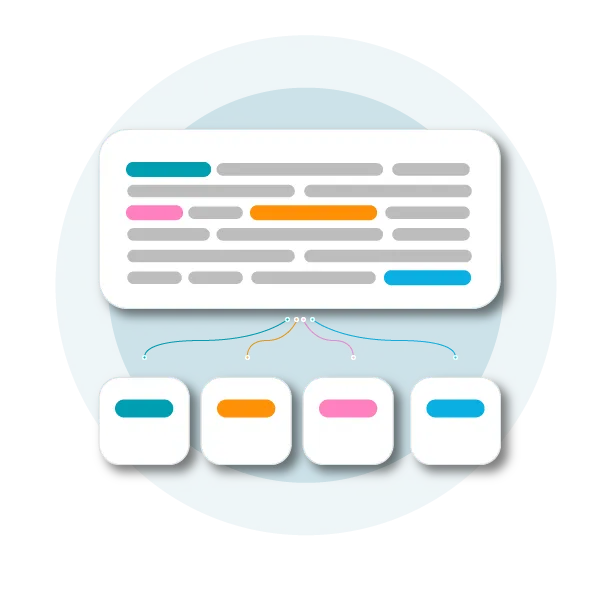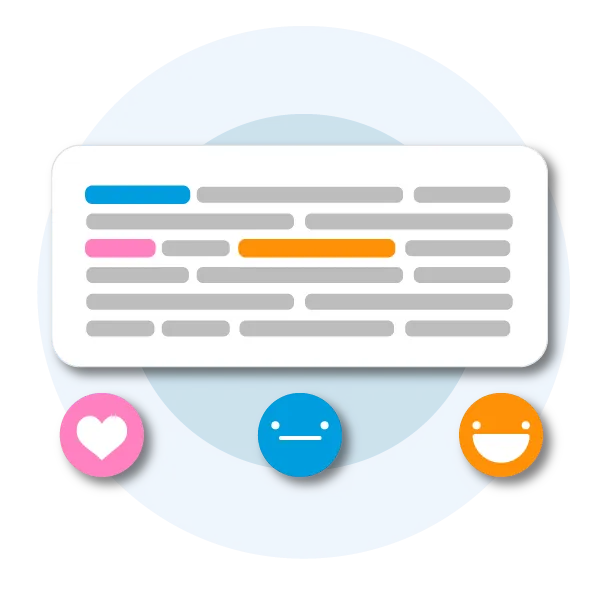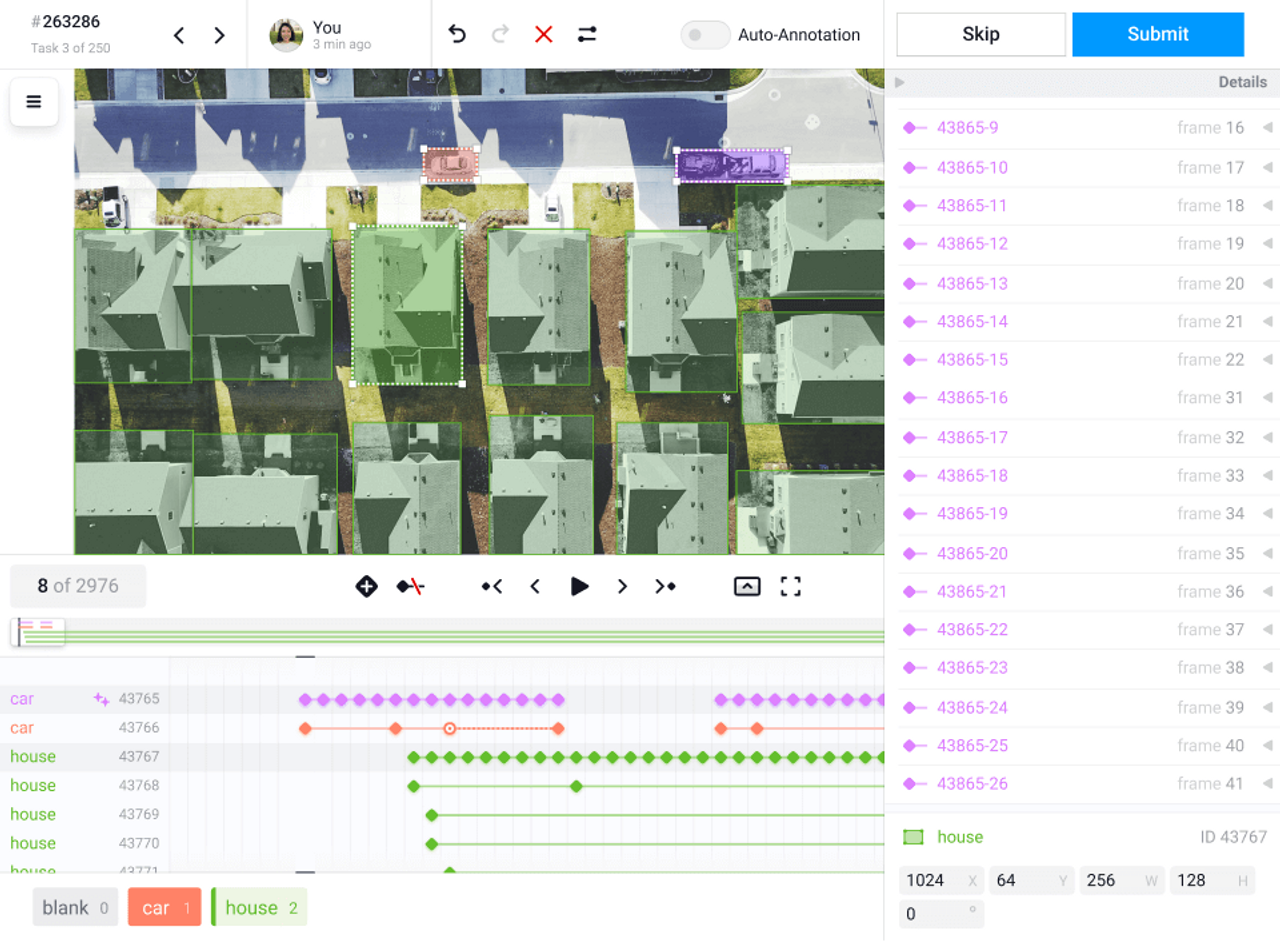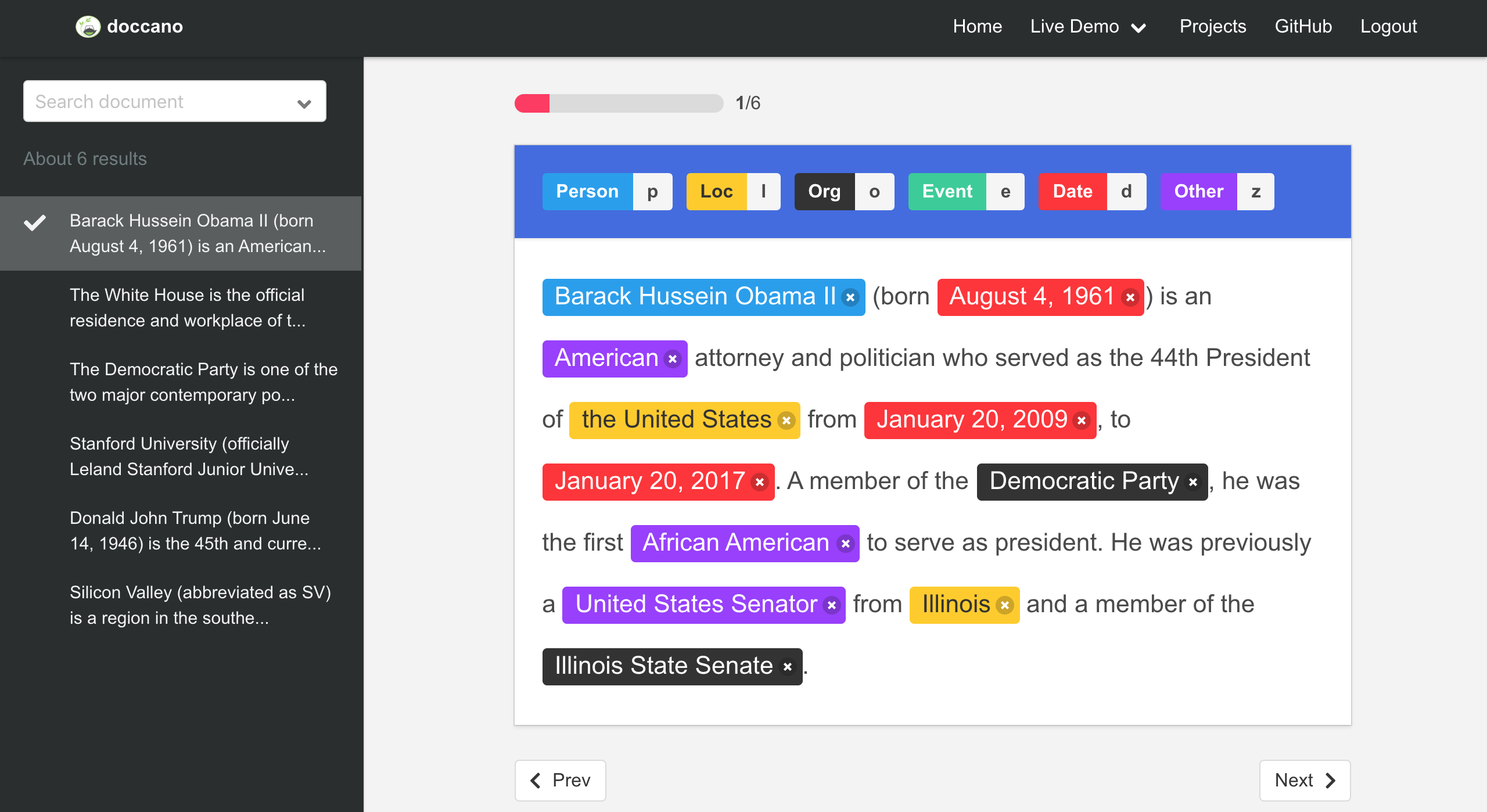




Classifies and labels named entities (e.g., people, organizations, locations, dates) for use in knowledge graphs, legal text analysis, intelligent search engines, and document classification

Identifies the purpose behind text inputs (e.g., queries, commands, feedback), essential for chatbots, voice-based systems, and conversational AI platforms.

Categorizes text based on emotion or tone (positive, negative, neutral) for use in social media monitoring, product feedback systems, and customer sentiment analysis.
Links concepts to a knowledge base to enhance AI comprehension and disambiguate meaning (e.g., “Apple” the brand vs. fruit), improving natural language understanding (NLU).
Traces pronouns or phrases back to the entities they reference (e.g., “John went home. He was tired.”), minimizing contextual ambiguity in language modeling.

Assigns grammatical roles (noun, verb, adjective, etc.) to each word, enabling syntactic parsing, linguistic modeling, and deep NLP structure learning.







Statswork helped us annotate thousands of clinical notes with precise medical terminology. Their domain expertise and attention to detail improved our NLP model performance significantly.
We needed sentiment analysis and product tagging across customer reviews. Statswork’s team delivered clean, consistent text annotations that boosted our recommendation engine.
Annotating complex legal documents requires precision, and Statswork nailed it. Their team understood context, redaction needs, and legal semantics perfectly.
Statswork enabled us to build a robust fraud detection model by annotating transaction descriptions with context-specific labels. Fast, accurate, and dependable.
AI & ML
Predective Analyses
Data Analyses
Text annotation is the act of tagging and labeling raw text for machine-readability in order to train Natural Language Processing (NLP) and artificial intelligence models. This is the first step to producing intelligent applications like chatbots, virtual agents, sentiment analysis engines, and search algorithms. Annotated text allows models to recognize entities, emotions, intent, and context — overall, dramatically increasing the machine’s ability to comprehend and make predictions based on written text.
Statswork offers a variety of NLP annotation services like:
We can also assist with multilingual and complex annotations following a project-specific set of procedures with an additional review by a subject-matter expert.
Our text annotation services for machine learning help many different industries, even ones outside of the standard categories, such as:
These practice areas use text annotation to improve sensible automation, data, and AI-based decision-making.
Our multi-layered quality assurance (QA) process includes:
The quality control we implement enhances high-quality training datasets for NLP models as well as real-world usefulness.
Yes. We partner with our clients to establish or modify:
Whether it is financial statements, clinical notes, or customer feedback, our team can be relied upon to follow your project specifications and can update guidelines in real-time as the data changes.
Statswork employs a mix of standards compliant and proprietary tools, including:
Tool selection depends on project size, data complexity and/or required integrations. These tools can support collaborative annotation, real-time quality assurance, version history, and secure API integrations into your machine learning pipeline.
Certainly. We are able to offer multilingual text annotation services in:
Our language specialists are native and fluent so there is no cultural and contextual misinterpretation. In addition, we can also complete multilingual named entity recognition (NER), translation alignment and cross-lingual sentiment detection for universal NLP models.
We have rigorous data protection protocols for sensitive text data:
We provide full traceability, audit trails, and compliance friendly workflows, particularly with legal, financial and medical datasets.
WhatsApp us